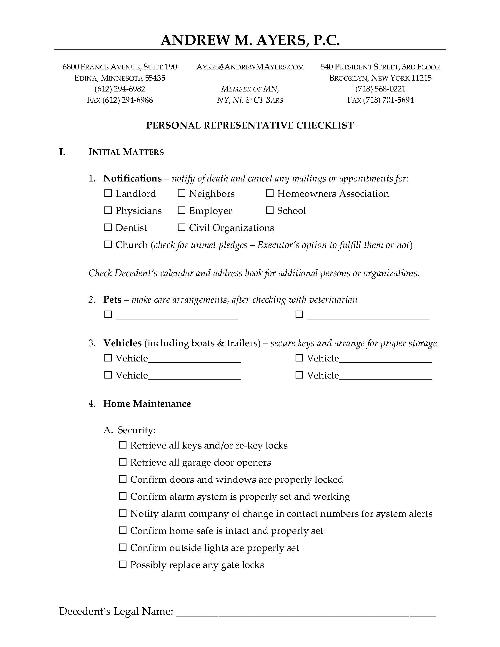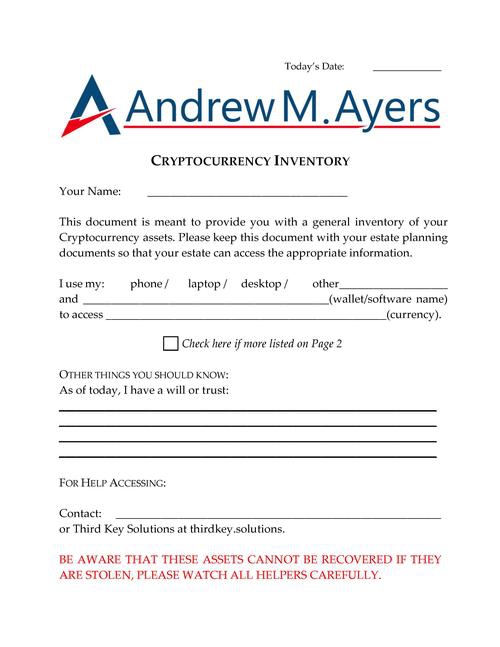 Commonly, people treat their estate planning documents as something they spend time creating, but then put away and do not often go back to look at again. However, if your documents are not kept up to date, you can be leaving behind chaos for your family to sort out.
Commonly, people treat their estate planning documents as something they spend time creating, but then put away and do not often go back to look at again. However, if your documents are not kept up to date, you can be leaving behind chaos for your family to sort out.
To truly honor your life and legacy, your documents must lay out your wishes for your estate, and the more current the wishes, the better. Even in the course of a short time, things can change, family dynamics can evolve, people can pass away, and these changes need to be reflected in your documents. It's the difference between a smooth administration of your estate and a tangled legal battle.
Before you put your will away for good, make a note to come back to it in a couple of years and check to see if it needs updating. If you are working with an attorney, they should hopefully be reaching out to you after you've signed your documents to check in and see if any updates are needed.
When to Update Your Will
There are some pretty straightforward times in your life when it's a good idea to update your estate planning documents:
- Major Life Events: Significant changes such as marriage, divorce, the birth of a child, or the death of a beneficiary should prompt an update to your will.
- Changes in Assets: Acquiring or selling substantial assets, like property or a business, necessitates a revision.
- Legal Changes: Updates in estate laws can affect your will’s validity. If you are working with an attorney, they should be staying in touch with you as laws may change. An example on the horizon right now? The Estate Tax Sunset in 2026.
- Time: Even in the absence of major changes, it’s advisable to review your will every 3 years.
How to Update Your Will
Taking that first step to update your will can be the biggest barrier that most people face, although it really doesn't need to be. All you need to do is reach out and have a conversation with your estate planning attorney (or find a new one if you've moved or you'd rather not work with that attorney again). While you may have spent a lot of time and money when you first created the documents, when it's time for an update, things may be much more straightforward.
To make it easy, here's the four steps I recommend when it's time to update your will:
- Consult a Lawyer: Professional advice ensures your updates are legally sound and reflect your current wishes accurately.
- Create a Codicil: A codicil is an official amendment to your existing will. It must be signed and witnessed like the original will, but it's not a long, drawn-out document or process.
- Draft a New Will: If the changes are substantial, drafting a new will might be simpler and clearer. Ensure you revoke all previous wills to avoid confusion.
- Inform Relevant Parties: Make sure your executor and other key individuals know about the updates and where to find the new documents.
Updating your will is a vital part of estate planning. By keeping your will current, you ensure that your estate is managed and distributed as you intend, providing peace of mind for you and your loved ones.
Need Help Updating Your Will?
If you've got a will that needs to be updated, or if you don't already have an estate plan, let's schedule a Legal Strategy Session online or by calling my Edina, Minnesota office at (612) 294-6982 or my New York City office at (646) 847-3560. My office will be happy to find a convenient time for us to have a phone call to review the best options and next steps for you to work with an estate planning attorney.






